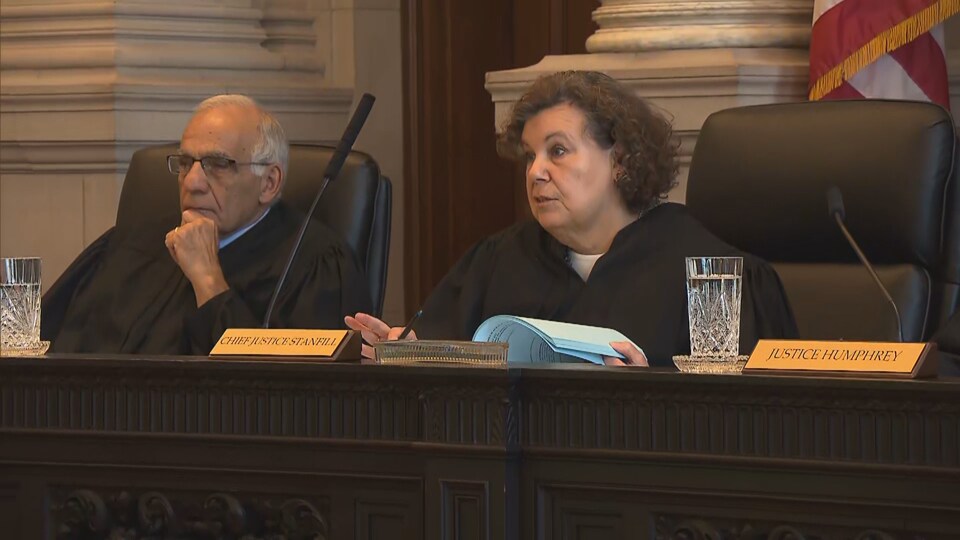PORTLAND, Maine-On Tuesday, the Maine Supreme Court heard arguments in two cases involving a Hydro-Quebec electricity export project in Massachusetts. The power line would run in the state, but there was a referendum in November and voters rejected it.
The Quebec state corporation and its partner Central Maine Power, which is owned by Avangrid, objected to the constitutionality of the consultation because it retroactively revoked the permits obtained. Proponents thus pleaded before six judges of the State supreme court the notion of rights acquired.
The construction of the 233-kilometer project on the American side is well underway: 86% of the corridor has been deforested and 450 million US dollars have been disbursed.
What grandfathering protects comes from a new law that changes the rules of the game after the factargued with Avangrid’s lawyer John Armando.
Attorney James Kilbreth, who represents the opposition group Say No to New England Clean Energy Connect, replied: No one can have a personal interest in leasing public lands that are in conflict with the legislative power.
The referendum debate relates to the second case heard on the same day. Supreme Court justices are also called to rule on public lands where the line will cross at a distance of 1.5 kilometers. The lease was badly discussed, as the project would drastically change the territory, which would require the approval of two-thirds of the legislature.
Chief Justice Valerie Stanfill reminded opponents, who are trying to block the energy corridor by all means, that they are not virgin forests and that forestry activities are already taking place in the area.
After the Supreme Court, allowed to appeal
244,000 people think what we are doing is constitutional and it will be hard for me to see the court reject the referendum, Tom Saviello’s reaction to the court exit. One of the strongest citizen voices against the project in Maine reiterated that Hydro-Quebec and its partner began building the power line last year with knowledge of current risks.
Benjamin Dudley, New England parties manager for Hydro-Quebec, said for his part hopefully be able to start work again soon and get a quick decision in their favor.
Judgments in both cases are expected this summer. Given the sensitivity of the case, Judge Stanfill concluded the hearings by emphasizing that his court was responds only to legal issues.
Although the two decisions are in favor of creating an energy corridor, there is no certainty. Three permits are currently being appealed by opponents, namely the United States Department of Energy (presidential permit), the United States Army Corps of Engineers and the Department of the Maine environment.
A war of powers
The small state of 1.3 million people is in the midst of a power struggle where $ 100 million has been spent on ad campaigns by various sides in recent years.
In the camp of the project promoters, is in addition to Hydro-Quebec, the Central Maine Power of Avangrid which itself has as parent company the Spanish Iberdrola. Opponents are financially backed by energy companies, such as NextEra Energy Resources, which notably produces electricity from natural gas. It is not said that they will suffer with the arrival of a new energy source in New England.
If its project goes ahead, Hydro-Québec may need to write on its books $ 536 million of the amounts already spent or committed for the project on both sides of the border. This contract would have cost $ 10 billion in revenue to the crown corporation’s coffers over 20 years.
Source: Radio-Canada

